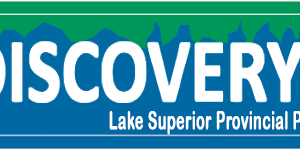 If there’s one thing in politics that is sacrosanct, it’s the right to vote. Voting is the most fundamental expression of what a person wants out of their local representative, as well as the direction they want the country to move towards. However, for some, the limited number of ways we can express our opinions through our vote can lead to frustration, and in a worst-case scenario, even prevent people from exercising this fundamental right. So let’s make it easier.
If there’s one thing in politics that is sacrosanct, it’s the right to vote. Voting is the most fundamental expression of what a person wants out of their local representative, as well as the direction they want the country to move towards. However, for some, the limited number of ways we can express our opinions through our vote can lead to frustration, and in a worst-case scenario, even prevent people from exercising this fundamental right. So let’s make it easier.
Removing barriers to voting is one of the objectives of the Supply and Confidence Agreement between the government and New Democrats. The key requirements for democratic reform under this agreement include three basic guiding principles that should ultimately make voting easier for people. This includes expanding “Election Day” to a three-day voting period, allowing people to vote at any polling station within their riding, and improving the process for mail-in ballots to ensure everyone who chooses to vote this way has their vote counted. At their core, these are three simple ways that we can improve the electoral system without changing the fundamentals of how we vote.
While it may make election day a little less exciting, expanding the period to three full days will allow more people to take time out of their busy schedule to vote. Whether it’s because of a busy work schedule, childcare requirements, or a scheduling conflict such as a doctor’s appointment, we often hear anecdotes of people who were unable to exercise their democratic rights on election day. While some people will know in advance that they won’t be available on election day, sometimes issues come up at moment’s notice. Nobody should be denied their right to vote because a child comes down with a sudden cold, or they get called into a work shift they weren’t expecting.
Voting should be as easy as walking to your nearest polling station. Too often, as many people in Algoma-Manitoulin-Kapuskasing can attest, the polling station down the road might not be the one you are expected to vote at, turning a quick trip to exercise your democratic right into an excursion that may dissuade some people from voting at all. While the details of the polling station will often appear on people’s voting cards, every election we hear stories of people who don’t receive them. Cutting out the confusion and allowing people to vote wherever a polling station exists in their riding seems like the best option.
Years ago, mail-in ballots were seen as predominantly an option for people who would not be able to vote in person on election day. But during the 2021 election, a record 1.2 million Canadians requested a mail-in ballot. However, Elections Canada confirmed last election that almost 100,000 were not counted, most because they were not received on time. Simplifying the mail-in balloting system and ensuring that those ballots are counted will go a long way to ensure Canadians have options when casting a ballot.
These are fairly common-sense changes to our electoral system that seek to make the process of voting easier for every Canadian. We should expect to see details of these changes in the coming months.
The Prime Minister also infamously promised almost a decade ago that “I’ll make sure the 2015 election will be the last under first-past-the-post system,” and then ignored this idea as soon as it became clear that the current system is what swept his government to power. How do we address actual changes to our electoral system? A Private Members Motion (M-86) which was tabled in the House of Commons could be of assistance in removing this process from partisan hands. M-86 calls on the government to create an assembly comprised of ordinary Canadians tasked with giving the government recommendations on how to reform our system. M-86 has already received support from MPs of all parties. An EKOS poll from 2022 indicates that 76 percent of Canadians supported the creation of a citizens’ assembly to study the country’s electoral system. The motion will be put to a vote as early as February 7th.
It’s clear that we can make democracy work better for people. Making it easier for people to vote is one key way we do this, and allowing citizens to tell us how they want their votes counted is another.
- Canadians Need Clarity on Oil and Gas Price Gouging - April 15, 2024
- Les Canadiens ont besoin de clarté concernant le gonflement des prix du pétrole et du gaz - April 15, 2024
- Carol Hughes Announces She Will Not Seek Re-Election - April 6, 2024
 Wawa-news.com You can't hear the 'big picture'!
Wawa-news.com You can't hear the 'big picture'!

